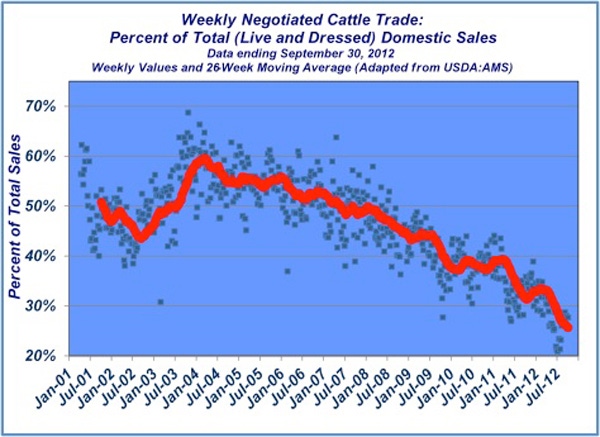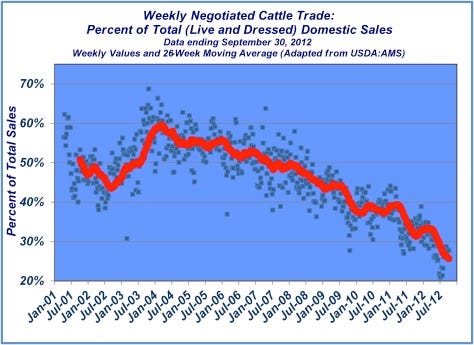Industry At A Glance: Captive Supplies
Weekly negotiated sales continue to decline as supply becomes increasingly tight; both sides are using non-cash commitments to ensure business continuity and as a tool for capital management.
October 15, 2012

Captive supplies have been an enduring and particularly contentious issue for the beef industry over the years. However, despite the debate, it’s clear that packers and feeders are decreasingly utilizing the spot market. Weekly negotiated sales continue to decline as supply becomes increasingly tight; both sides are using non-cash commitments to ensure business continuity and as a tool for capital management.

As such, given the outlook for even more relative over-capacity in the year(s) to come, where might this weekly negotiation figure ultimately end up? Is it possible the beef industry transitions even further to a market structure that parallels the hog market? Leave your thoughts to these questions and the above chart in the comments section below.
About the Author(s)
You May Also Like




.png?width=300&auto=webp&quality=80&disable=upscale)
